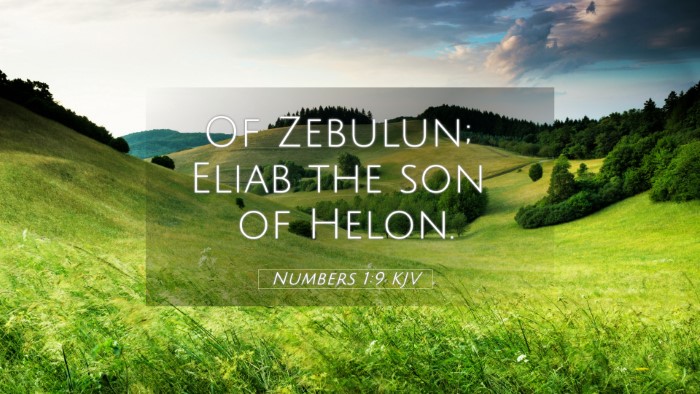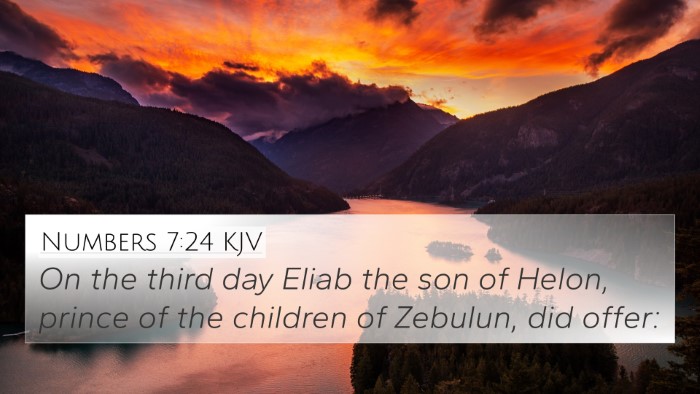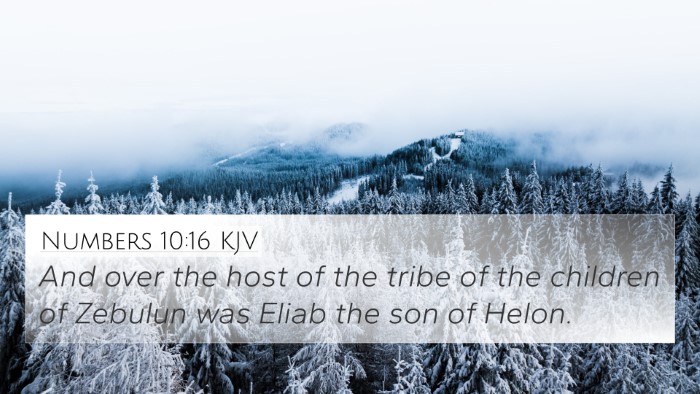Understanding Numbers 1:9
Bible Verse: Numbers 1:9
Context: This verse is part of the opening chapters of the Book of Numbers, where God commands Moses to take a census of the Israelite community as they prepare to journey through the wilderness. The specifics of this verse identify particular tribes and their leaders, marking the organization and structure of the Israelite camp.
Verse Meaning and Interpretation
The verse states: "Of the children of Benjamin, by their generations, after their families, by the house of their fathers, according to the number of the names, from twenty years old and upward, all that were able to go forth to war." This outlines the systematic approach to counting the men eligible for military service from the tribe of Benjamin.
According to various public domain commentaries:
- Matthew Henry: The emphasis is placed on the importance of each tribe in the greater community. The tribe of Benjamin, though small, had its own identity and role in the unfolding narrative of Israelite history. Henry notes how God’s detailed direction reflects His care and organization.
- Albert Barnes: Barnes emphasizes the historical significance of the tribe of Benjamin, highlighting its position in both the Old and New Testament. He draws attention to the dual identity of Benjamin as both a warrior tribe and one that produced notable figures, such as the Apostle Paul.
- Adam Clarke: Clarke presents a detailed analysis of the numerical and familial structures within the tribe, which he connects to their future significance. He reflects on the socio-political implications of the census, noting the importance of tribal identity in Israel's governance.
Cross-References to Numbers 1:9
To enrich our understanding of this verse, let us explore some relevant Bible verse cross-references:
- Judges 20:15: This verse recounts the military mobilization of the tribe of Benjamin, underscoring their martial prowess.
- Philippians 3:5: Paul identifies himself as a Benjamite, linking the Old Testament tribe to New Testament faith.
- Genesis 49:27: Jacob’s blessings reflect the future role of the tribe of Benjamin, presenting them as fierce warriors.
- Deuteronomy 33:12: Moses blesses the tribe of Benjamin, noting God's protection and favor upon them.
- 1 Chronicles 12:1-2: This passage discusses Benjaminites joining David, illustrating the tribe's ongoing military significance.
- Romans 11:1: Paul asks if God has rejected His people, affirming his identity as a Benjamite, which ties back to the tribe’s chosen status.
- Jeremiah 3:18: The prophetic vision of Israel’s reunification includes the tribes, emphasizing the communal aspect of God's people.
Thematic Connections and Spiritual Insights
This verse not only provides historical context but also sets the stage for understanding themes of identity, community, and covenant in the Bible.
- Tribal Identity: The listing of tribes signifies God's intent to preserve each tribe's unique identity within the larger Israelite community.
- Preparation for Battle: The focus on those "able to go forth to war" reflects a broader biblical theme of readiness and reliance on God in times of conflict.
- Covenantal Promises: The tribe of Benjamin's significance in the census ties back to God’s promises to the patriarchs and their descendants, linking historical narratives with future hopes.
Connections between Bible Verses
In exploring connections between Numbers 1:9 and other scriptures, we find a rich tapestry of themes that enhance our understanding of God’s plan for Israel:
- Linking Bible Scriptures: This act of census provides a foundation for God’s call to order and unity in His people, a theme echoed in 1 Corinthians 14:40, which emphasizes "Let all things be done decently and in order."
- Comparative Bible Verse Analysis: Comparing Numbers 1 with 2 Samuel 24, where David conducts a census, highlights the importance of recognizing the sovereignty of God in such matters of counting His people.
- Inter-Biblical Dialogue: The New Testament use of tribal heritage in Hebrews 7 explains the priestly lineage, showing the long-lasting cultural impacts of tribal identities.
Conclusion
Numbers 1:9 serves as a crucial verse in establishing the identity and role of the tribe of Benjamin within the narrative of Israel. It emphasizes the significance of meticulous organization in the community of God’s people and prepares for their journey ahead. This study illustrates how the Old Testament census not only informs us about the past but also connects deeply into the fabric of biblical theology and Christ's redemptive narrative.





